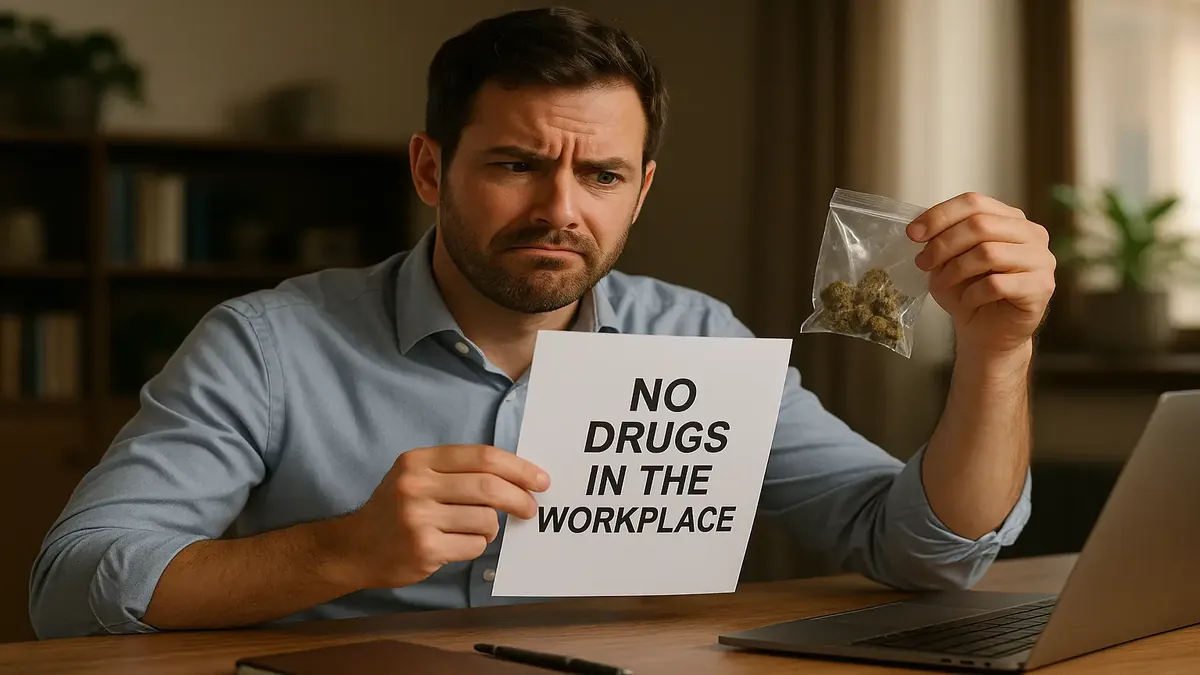When HR Bans 'Mood-Altering Substances' and Coffee Becomes Contraband

If you’ve ever rolled your eyes at a clumsy company policy, this story is for you. Picture this: a workplace where the rules are so poorly crafted that even your morning coffee becomes a forbidden substance. One quick-witted employee decided to take her HR department’s amateurish ban on “drugs” quite literally, and what happened next is a masterclass in malicious compliance—and office chaos.
The Perils of Poorly Written Policies
We’ve all seen it: HR rolls out a new policy, and it’s clear the only thing it was tested on was spellcheck. This was precisely the scene in Redditor u/Gold_Au_2025’s household. His wife, handed a fresh-off-the-printer “fitness for work” policy, did the sensible thing and gave it a once-over. The document, apparently drafted by someone with less legal acumen than your average barista, sternly warned: “Do not come to work under the influence of drugs or alcohol, and do not bring drugs or alcohol to work.”
The trouble? The policy never defined what “drugs” actually meant. Are we talking Tylenol, antibiotics, grandma’s cough syrup, or just the things you see on cop shows? As any good stickler knows, vague rules are an invitation for mischief—or, in this case, a teachable moment.
Enter: The Malicious Compliance
After a little constructive critique (read: poking holes big enough for a coffee truck), HR tried to patch the policy. The new version, now with dictionary-level seriousness, banned “any non-prescription substance which has a physiological or mood altering effect.” You can practically hear the Redditor’s wife cackling as she signed it. Because if you want “mood-altering substances” out of the workplace, you’d better be ready to say goodbye to the real office MVP: caffeine.
The next day, she made her move. The coffee vanished from the break room. Soon, the office resembled a caffeine-deprived zombie apocalypse. Productivity plummeted, tempers flared, and a crowd gathered in the break room, desperate for their fix. The manager, sensing mutiny, zeroed in on our heroine—who, notably, was the only one not losing her mind.
Her defense? Ironclad. The new policy clearly outlawed mood-altering substances, and coffee, as any sleep-deprived adult knows, is most definitely mood-altering. Unless someone had a prescription for espresso shots, the coffee was contraband.
Why Precise Language Matters
This episode is a textbook lesson in why policies need clear definitions. Vague or overly broad rules don’t just invite confusion—they beg for creative (and often hilarious) interpretation. In this case, the banning of coffee wasn’t just a technicality; it was a logical conclusion based on the company’s own wording.
And it gets better: after the caffeine coup, HR finally saw the light. The office got its coffee back (praise be!), and the company rewrote the policy, this time using actual government guidelines as a template. Sometimes, you have to threaten the morning brew before people get serious about policy.
A Caffeinated Call to Action
If you’ve ever suffered under a poorly written office rule, you know the pain—and the potential for office mischief. This story isn’t just hilarious; it’s a reminder to always read the fine print, and maybe, just maybe, to keep an emergency stash of coffee beans in your desk drawer.
So next time HR hands you a new policy, ask yourself: could this be used to ban coffee? If the answer is yes, it’s time to raise your mug—and your concerns.
Have you ever experienced (or instigated) some harmless malicious compliance over a silly workplace rule? Share your story in the comments below! And remember: always define your terms—especially if caffeine is on the line.
Original Reddit Post: No more drugs in the workplace? OK!